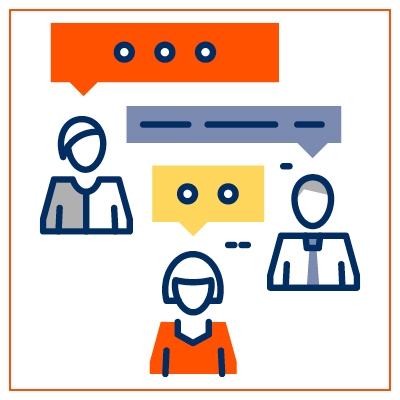A foundational mistake is assuming that you KNOW your clients, that is, what they want, what they expect, how they view your brand, etc. Sure, you have a good idea, but it goes deeper than that. One marketing tactic that we have always supported is focus group research. Let’s briefly review what they are and how they are orchestrated, as well as share some real-life examples we have “lived” in years of performing this research.

Focus Groups Defined
Between 10-12 individuals are recruited to physically meet at either a research facility or other suitable location to gather in a room to discuss a topic and share their insights. These “respondents” or “participants” may or may not know who is funding the research. For example, the group could be current and/or past clients of a particular company and they would, obviously, find out who is behind the research. Conversely, if you’ve gathered a group to discuss what financial management software clients need, want, and use (because you sell such software), the respondents would likely not be told which company is behind the research. Detailed, non-leading questions and discussion points are painstakingly outlined and used by a facilitator during the two-hour session.
What Is Learned And How is It Used?
CIMply put, a plethora of useful information is gathered. Companies learn specific buying habits, how buying decisions are made, how their companies and competitors are viewed (branding), what consumers want and need in services/products, and on and on. Focus group findings can be used across the board at a given company:
- Where and how to most effectively advertise and market the company
- What product or service differentiators to include, expand or promote
- Which product or service features and benefits to expand or integrate
- How to steer the company’s strategic plan and its diversified marketing approach

Wow Moments, And “Great Ideas” Gone Awry
We’ve done a number of focus groups in multiple states and industries, and there have been wow moments at each. A sampling:
A large financial services firm envisioned creating a “one-stop-shop” under its roof, bringing together CPAs, attorneys, and financial advisors to jointly share information and services about their clients. When we pulled together a group of their actual current clients (all high-net-worth individuals), the idea was outlined (with the perceived benefits), and within minutes, it was clear that there was huge resistance to the idea. The overwhelming response? “I don’t want my CPA to be talking to my lawyer or my financial advisor. I would pull my accounts if someone wanted me to work that way.” Ultimately, the plug was pulled on what would have been a complex and expensive business model to create, saving countless dollars and heartache.


A decades-old company in the automotive services realm had us hold three focus groups to identify motivators for choosing one company over another. The unexpected twist was that the majority of the respondents said they had never heard of our client’s company when we discussed the brand image of several competitors and our client’s company. Turns out, when the client had reached the pinnacle of name recognition in the late 1990s, it pulled most marketing. “Everybody knows us now, business is good. Let’s cut marketing.” What they didn’t take into account were the 6,000 people per month moving into the city, people who had no way of knowing about this established brand.
The information that can be gathered from this formal research can be incredibly useful. We have yet to hold a focus group that didn’t ultimately pay for itself many times over by strengthening the company, increasing revenue, improving the client experience/satisfaction, etc. If you’d like to discuss investing in focus group research, we’ll share all the details and work with you to uncover hidden gem information.
Quote of the week:
Research is creating new knowledge.
Neil Armstrong